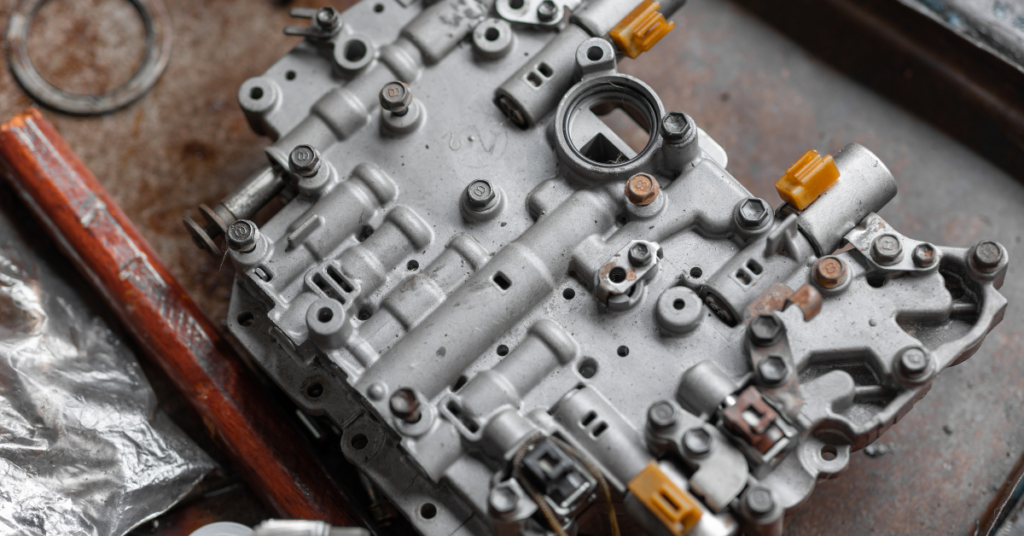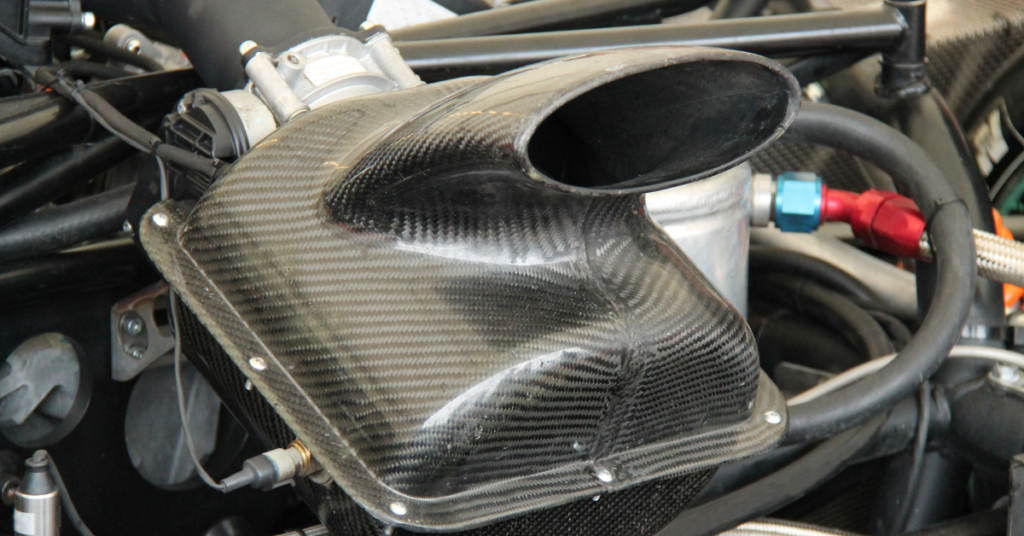
BMW is a renowned automotive brand known for its luxurious and high-performance vehicles.
In this article, we will delve into the details of the P0304 BMW code specifically related to BMW models. This code refers to a misfire detected in cylinder 4 of the engine.
Contents
Understanding the P0304 BMW Code
The P0304 code is a diagnostic trouble code that indicates a misfire in cylinder 4. It is a generic OBD-II code that applies to all vehicles, but here we will focus on its relevance to BMW cars.
When the engine control module (ECM) detects a misfire in a particular cylinder, it stores the specific code for that cylinder, in this case, cylinder 4.
A misfire occurs when the air-fuel mixture in the cylinder fails to ignite properly. This can lead to a loss of power, rough idling, and an increase in fuel consumption.
It is crucial to address this issue promptly to prevent further damage to the engine.
Possible Causes of Cylinder 4 Misfire
Several factors can contribute to a cylinder 4 misfire in a BMW. Identifying the root cause is essential to effectively resolve the issue. Here are some common causes:
Ignition System Issues
Faulty spark plugs, ignition coils, or spark plug wires can disrupt the proper spark required for combustion, leading to a misfire. Regular maintenance and timely replacement of these components are crucial.
Faulty spark plugs can result in incomplete combustion, causing a misfire in cylinder 4. It is recommended to use high-quality spark plugs that are specifically designed for BMW models.
Worn or damaged ignition coils can also contribute to a misfire. These coils are responsible for creating the high voltage necessary for spark plug ignition. Replacing faulty coils is essential to restore proper combustion.
Faulty spark plug wires can cause inconsistent spark delivery to cylinder 4, resulting in a misfire. Regularly inspect and replace worn or damaged wires to maintain optimal performance.
Fuel System Problems

A clogged fuel injector or a malfunctioning fuel pressure regulator can disrupt the fuel flow to the cylinder, resulting in a misfire. It is important to ensure that the fuel system is clean and functioning optimally.
A clogged fuel injector can restrict the flow of fuel to cylinder 4, leading to an inadequate air-fuel mixture. Regularly cleaning or replacing fuel injectors can help prevent misfires.
A malfunctioning fuel pressure regulator can cause irregular fuel pressure, affecting the combustion process. It is crucial to inspect and replace faulty regulators to maintain proper fuel delivery.
Air Intake Issues
A blocked or restricted air intake can disturb the air-fuel mixture, causing a misfire. Regularly checking and cleaning the air filter and intake system is recommended.
A dirty or clogged air filter can restrict the airflow to the engine, leading to an imbalanced air-fuel mixture. Regularly replacing the air filter can help prevent misfires.
Any obstructions or leaks in the air intake system can disrupt the airflow, affecting combustion. Thoroughly inspecting and repairing any issues in the intake system can help maintain proper engine performance.
Engine Mechanical Problems
Low compression in cylinder 4 due to issues such as worn piston rings, damaged valves, or a blown head gasket can result in a misfire.
A thorough inspection of the engine’s mechanical components is necessary to diagnose and resolve such problems.
Worn piston rings can lead to low compression, causing a weak combustion process. Replacing worn rings and ensuring proper cylinder sealing is vital to prevent misfires.
Damaged valves can result in improper sealing, affecting the combustion process. Valve repairs or replacements may be necessary to resolve misfires.
A blown head gasket can cause coolant to leak into the combustion chamber, leading to a misfire. Replacing the head gasket and ensuring proper sealing is crucial to prevent further damage.
Engine Control Module (ECM) Malfunction

In some cases, the ECM itself may be faulty or experiencing a software glitch, leading to incorrect fuel and ignition settings. Professional diagnostics may be required to identify and rectify ECM-related issues.
Professional diagnostics using BMW-specific diagnostic tools can help identify any faults or glitches in the ECM. Reprogramming or replacing the ECM may be necessary to resolve misfires caused by ECM malfunctions.
Diagnosing and Resolving the P0304 Code
To diagnose and resolve the P0304 code, follow these steps:
Scan the Vehicle
Use a BMW-specific diagnostic tool to retrieve the stored fault codes from the ECM. This will help pinpoint the exact cause of the misfire in cylinder 4.
The diagnostic tool will provide specific information about the misfire, such as the number of misfire events and real-time data from various engine sensors. This information is crucial for accurate diagnosis.
Inspect Ignition System Components
Check the condition of the spark plugs, ignition coils, and spark plug wires. Replace any components that show signs of wear or damage. It is advisable to replace all spark plugs at once to ensure consistent performance.
Carefully examine the spark plugs for signs of fouling, such as carbon deposits or worn electrodes. Replace any faulty spark plugs with new ones that meet the manufacturer’s specifications.
Inspect the ignition coils for cracks, corrosion, or other visible damage. Replace any faulty ignition coils to ensure proper spark delivery.
Check the spark plug wires for cracks, fraying, or other signs of wear. Replace any damaged wires with high-quality replacements.
Examine the Fuel System
Inspect the fuel injectors for blockages or leaks. If necessary, clean or replace any faulty injectors. Additionally, ensure that the fuel pressure is within the manufacturer’s specified range.
Use a fuel injector cleaning solution to remove any deposits or blockages in the injectors. Follow the manufacturer’s instructions for proper cleaning.
If a fuel injector is found to be faulty, replace it with a new one that matches the specifications of your BMW model.
Check the fuel pressure using a fuel pressure gauge. If the pressure is outside the recommended range, inspect and repair or replace the fuel pressure regulator as necessary.
Verify Air Intake System

Clean or replace the air filter if it is dirty or clogged. Inspect the air intake system for any obstructions or leaks that may disrupt the airflow to the engine.
Remove the air filter and inspect it for dirt, debris, or damage. Clean or replace the air filter according to the manufacturer’s recommendations.
Thoroughly inspect the air intake system, including the intake manifold and hoses, for any signs of damage, leaks, or obstructions. Repair or replace any faulty components to ensure proper airflow.
Check Engine Compression
Conduct a compression test to assess the mechanical condition of the engine. Low compression in cylinder 4 may indicate internal engine problems, requiring further inspection and repairs.
Use a compression tester to measure the compression in cylinder 4. Compare the reading to the manufacturer’s specified range. If the compression is low, further inspection of the engine’s mechanical components may be necessary.
Inspect the piston rings, valves, and head gasket for any signs of wear, damage, or leaks. Repair or replace any faulty components to restore proper compression.
Address ECM Issues
If all other components are functioning correctly, but the misfire persists, consider reprogramming or replacing the ECM to rectify any software or hardware malfunctions.
Consult a professional BMW technician or dealership for ECM reprogramming or replacement. They have the necessary tools and expertise to ensure proper programming and compatibility.
Importance of Timely Maintenance
Regular maintenance is crucial to prevent misfires and other engine-related problems. Here are a few maintenance tips to ensure the optimal performance of your BMW:
Scheduled Servicing
Adhere to the manufacturer’s recommended maintenance schedule for regular servicing, which includes oil changes, filter replacements, and overall inspections.
Regular oil changes help maintain proper lubrication and prevent engine wear, reducing the risk of misfires.
Replace filters, such as air filters and fuel filters, according to the manufacturer’s recommended intervals to ensure proper airflow and fuel delivery.
Quality Fuel

Use high-quality fuel that meets the manufacturer’s specifications to prevent issues related to fuel quality.
High-quality fuel with the correct octane rating ensures proper combustion and reduces the risk of misfires.
Genuine Parts
When replacing any components, ensure that you use genuine BMW parts or high-quality aftermarket alternatives to maintain the performance and reliability of your vehicle.
Genuine BMW parts are designed to meet the specific requirements of your vehicle, ensuring optimal performance and compatibility.
High-quality aftermarket parts that meet or exceed BMW’s specifications can be a cost-effective alternative without compromising performance.
Professional Inspections
Periodically have your vehicle inspected by a qualified BMW technician to identify and address any potential issues before they escalate.
A professional inspection can help identify early signs of component wear or damage, allowing for timely repairs and preventing misfires.
Qualified technicians have the expertise and specialized tools necessary to diagnose and resolve complex issues related to misfires.
Conclusion
The P0304 code in a BMW indicates a misfire in cylinder 4. Prompt diagnosis and resolution of this issue are essential to prevent further damage to the engine.
By understanding the possible causes, conducting thorough inspections, and following proper maintenance practices, you can keep your BMW running smoothly and efficiently.
Remember to consult a professional if you encounter any difficulties or are unsure about performing the necessary repairs yourself.
FAQs
1. What does the P0304 code indicate in a BMW?
The P0304 code indicates a misfire in cylinder 4 of the engine in a BMW.
2. What are some possible causes of a cylinder 4 misfire in a BMW?
Some possible causes of a cylinder 4 misfire in a BMW include ignition system issues, fuel system problems, air intake issues, engine mechanical problems, and engine control module (ECM) malfunction.
3. How can I diagnose and resolve the P0304 code in my BMW?
To diagnose and resolve the P0304 code in your BMW, you should scan the vehicle with a BMW-specific diagnostic tool, inspect ignition system components, examine the fuel system, verify the air intake system, check engine compression, and address ECM issues if necessary.
4. Why is timely maintenance important for preventing misfires in a BMW?
Timely maintenance is important for preventing misfires in a BMW because regular servicing, using quality fuel, using genuine parts, and having professional inspections can help identify and address potential issues before they escalate, ensuring the optimal performance of the vehicle.



